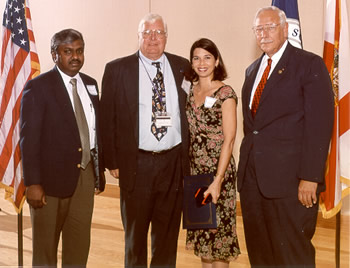Mechanisms of Vascular Impairment Induced by Withdrawal of Statins
Grant Winner
- Ana Maria Castejon, Ph.D. – College of Pharmacy
Dean
- William Hardigan – College of Pharmacy
Abstract

Statins, are the most effective and widely used lipid-lowering drugs. Statins are effective in primary and secondary prevention of cardiac events in patients with ischemic heart disease. Long-term treatment with statins is commonly prescribed; however, nearly 1.2 % of subjects receiving statin treatment develop requiring therapy discontinuation complications (myopathy, rhabdomyolysis, liver dysfunction). Recent studies in patients with coronary heart disease reported that discontinuation of therapy with statins was associated with increases in thrombotic vascular events and of death or non-fatal myocardial infarction. The mechanisms underlying these effects are unknown, although impaired nitric oxide (NO) production by endothelial cells has been described after discontinuation of statins. Because of the relevance of these observations, we propose to investigate how statin withdrawal induces vascular complications. The study will be conducted in bovine endothelial cells and in vascular smooth muscle cells in culture. The effects of statin withdrawal on the production of vascular protective and vascular deleterious substances will be investigated. Specifically, we will determine the expression and levels of NO, endothelin-1 (ET-1) and of the intercellular cell adhesion molecule (ICAM-1) by the endothelium, and of angiotensin-II AT1-receptor expression in vascular smooth muscle cells. It is proposed that withdrawal of statins should lead to activation of vasoconstrictor, mitogenic and inflammatory markers (ET-1, AII, ICAM-1) and to reduction of the protective action of NO.